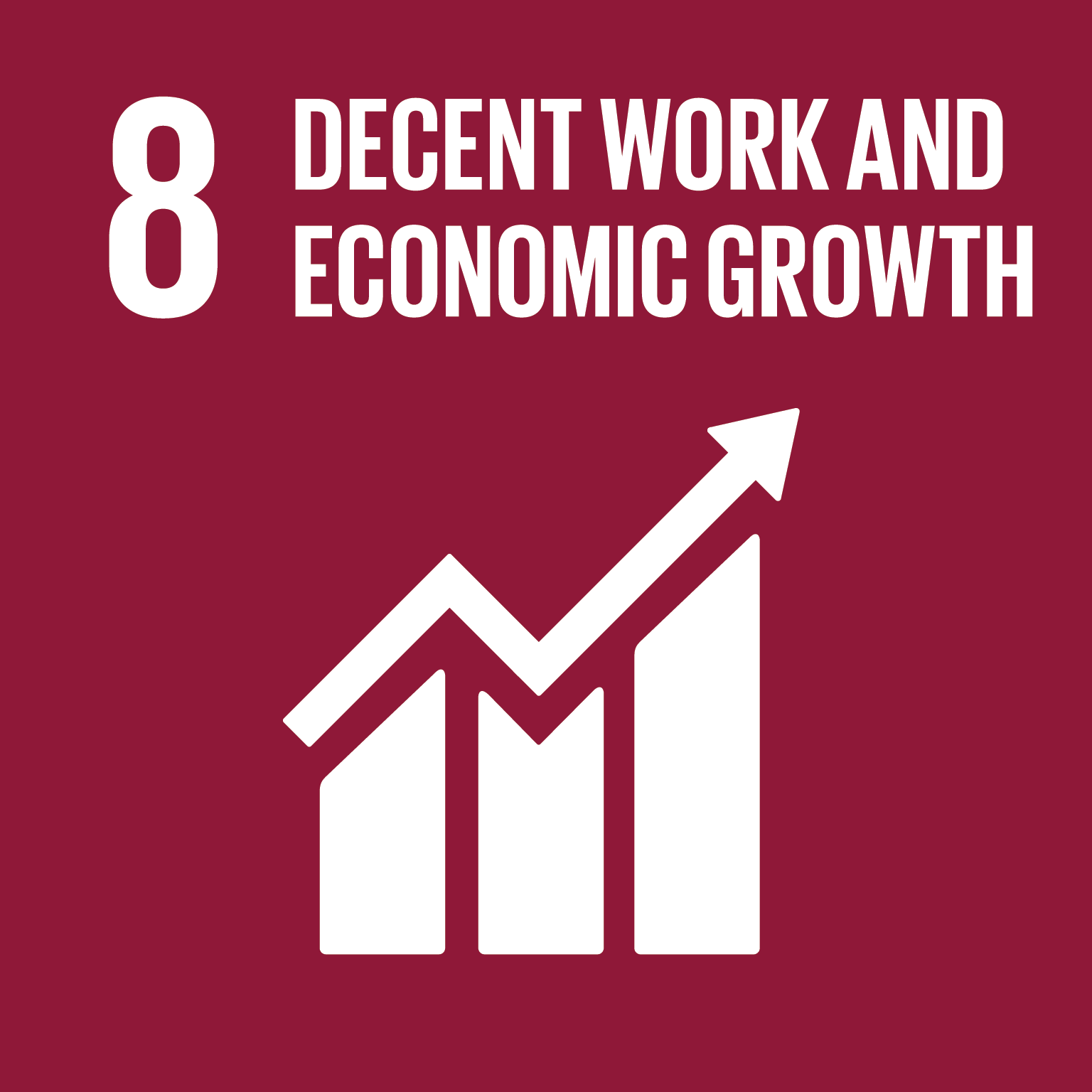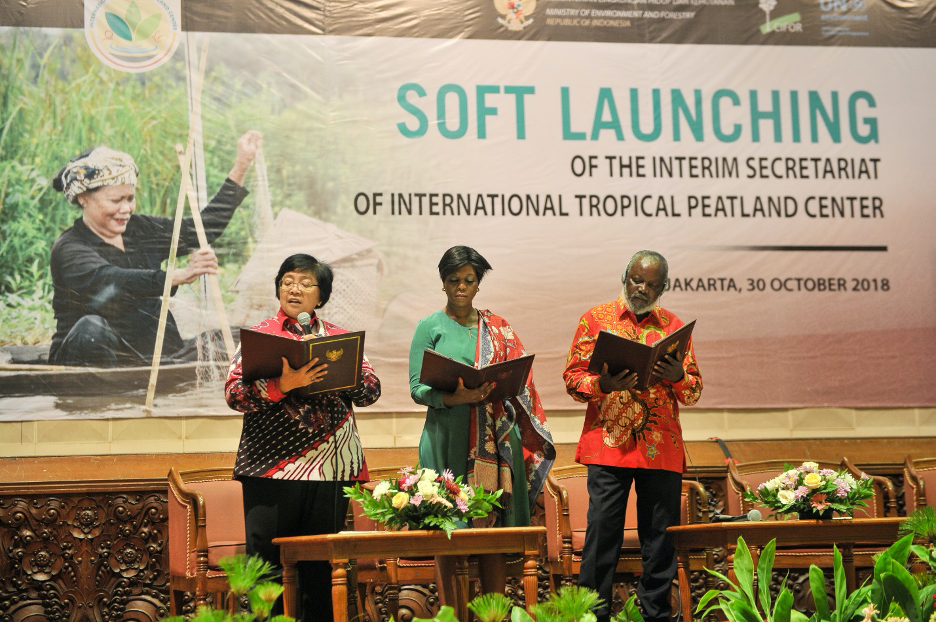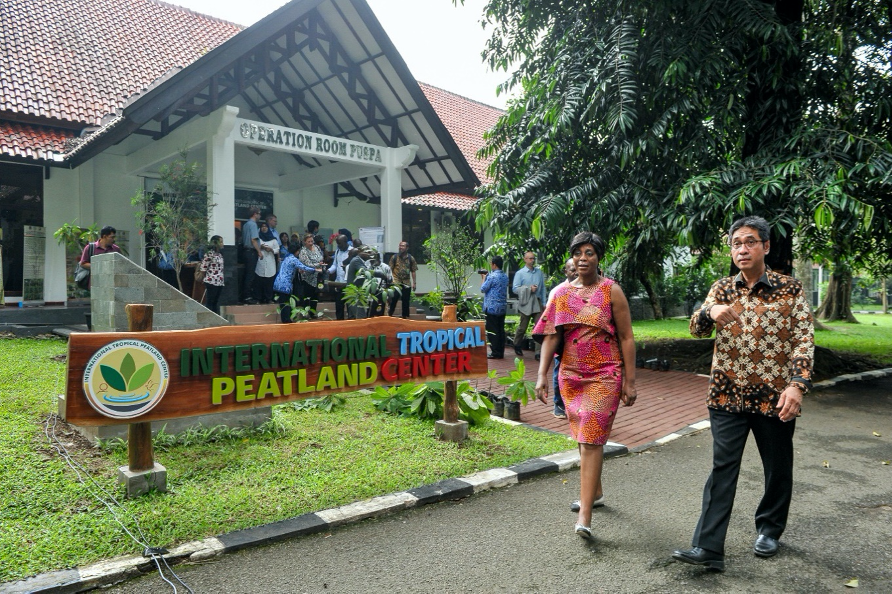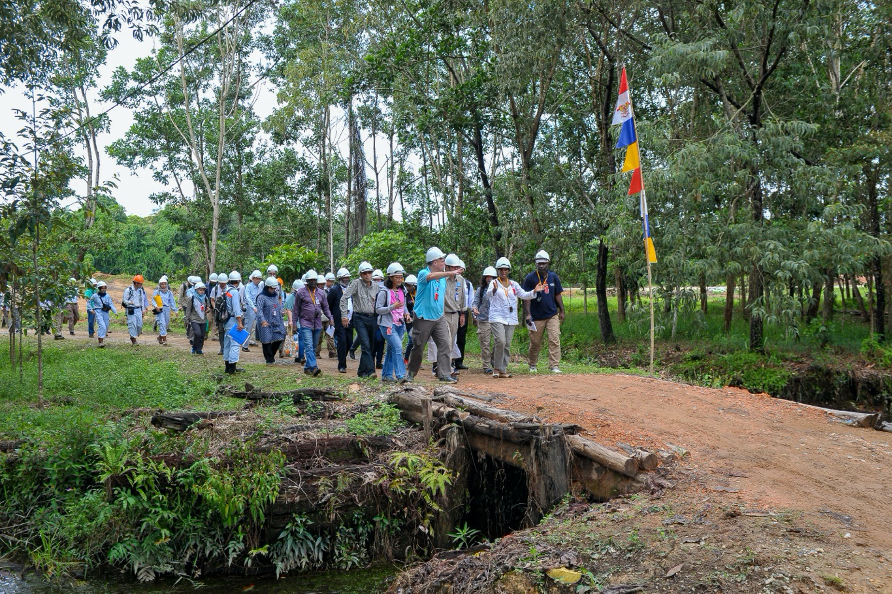The Global Peatlands Initiative
Working to preserve the world’s largest terrestrial organic carbon stock
Challenges
Peatlands are vital, superpowered ecosystems that capture and store carbon, protect and host biodiversity, control water supply and quality, cool the atmosphere and produce food. Found in over 180?countries, the international community is only beginning to understand their role in abating climate change. Peatlands cover only 3?percent of global land area but store 30?percent of the world’s soil carbon. They contain twice as much carbon as the world’s forests. Greenhouse gas emissions from drained or degraded peatlands account for 5?to?10?percent of the carbon budget.
In 2016, Indonesia declared a state of emergency and called for support to tackle peatland fires. The Government committed to halting any new conversion of peatlands to agricultural lands and launched an urgent, nationwide campaign to rewet and restore them. These challenges inspired bold South-South collaboration and the creation of the Global Peatlands Initiative.
Towards a Solution
The Global Peatlands Initiative, led by the United Nations Environment Programme (UNEP), was launched at the Conference of the Parties (COP) to the United Nations Framework Convention on Climate Change (UNFCCC) in Marrakech, Morocco in 2016. The Initiative seeks to develop and adopt new approaches to the conservation, restoration and sustainable management of peatlands, linking science to practice and policymaking. Four peat-rich tropical countries (the Congo, the Democratic Republic of the Congo, Indonesia and Peru) are serving as the Initiative’s pilot countries. Due to the significant amount of carbon they hold and the catastrophic consequences of their drainage and degradation in the past, over 30 partners have committed to working together to halt further destruction of these peatlands. The Initiative is gaining international attention.
The project helps countries to comply with major Multilateral Environmental Agreements (MEAs), including UNFCC, the Convention on Biological Diversity, the Convention to Combat Desertification, the Convention on the Conservation of Migratory Species of Wild Animals, and the Convention on Wetlands of International Importance especially as Waterfowl Habitat (Ramsar Convention). The goal of the Initiative is to provide targeted support to the Congo, the Democratic Republic of the Congo, Indonesia and Peru. It also seeks to help other countries achieve their intended nationally determined contribution by including goals concerning peatlands in efforts to advance progress towards the Sustainable Development Goals. By collecting, advocating for and supporting conservation practices and restoration efforts in the pilot countries, the project also contributes to the Aichi Biodiversity Targets, especially Target 5, on reduced habitat loss and degradation, Target 14, on the restoration and safeguarding of ecosystems that provide essential and valuable services, and Target?15, on the contribution of ecosystems to carbon stocks.
Partners work together to assess, measure and preserve peat carbon and biodiversity, sharing knowledge and experience through a South-South cooperation approach. They promote healthy peatlands through their restoration and conservation as one of the fastest ways to tackle the climate crisis.
The Second Partner Meeting of the Global Peatlands Initiative took place in Jakarta, Indonesia in May?2017. Participants included representatives from the Governments of the pilot countries and over 80?specialists. The Initiative’s partners shared their experience and knowledge and charted a collaborative path forward to support one another.
The Global Peatlands Initiative meeting culminated in a special thematic session entitled ‘Peatlands Matter’, hosted by the Global Landscapes Forum. Led by the Centre for International Forestry Research and jointly coordinated by UNEP and the World Bank, the session explored what it means to employ multidirectional and multi-stakeholder dialogues in practice, adopting a community-first and people-centred approach to peatlands management with a strong focus on South-South cooperation, innovation and learning.
Under the leadership of UNEP, the Global Peatlands Initiative released a Rapid Response Assessment for peatlands in November?2017 at a side event held at the COP23 in Bonn, Germany.
In March?2018, in an unprecedented move, the Congo, the Democratic Republic of the Congo and Indonesia signed the Brazzaville Declaration on Peatlands to protect the Cuvette Centrale region in the Congo Basin (the world’s largest tropical peatlands) from unregulated land use and to prevent its drainage and degradation. The Declaration was an outcome of the three-day Third Partner Meeting of the Global Peatlands Initiative, held in Brazzaville and co-hosted by the Congo and the Democratic Republic of the Congo. The Minister of Environment and Forestry of Indonesia shared the country’s experience in peatland conservation and restoration, as captured in the report entitled ‘Managing Peatlands to Cope with Climate Change: Indonesia’s Experience’.
The Brazzaville Declaration formalized the commitment of these three Governments to continue to work together and exchange knowledge with the support of Initiative partners to promote better management and conservation of the Cuvette Centrale peatlands, a globally important carbon store.
The Global Peatlands Initiative has continued to raise the profile of South-South cooperation on peatlands during a series of global policy-setting events. Collaboration on the MEAs was fostered during the Ramsar Convention COP13 and in a workshop held in Vilm, Germany. In addition, peatlands were featured during World Wetlands Day, World Environment Day and in the UNEP Frontiers 2018/19 publication. They also served as a stand-out topic at over ten side events and discussion forums during the UNFCCC COP24 in Katowice, Poland and were featured at the UNFCCC COP25 held in Madrid, Spain.
As a significant global milestone for the Initiative, the first ever global resolution on the conservation and sustainable management of peatlands was adopted with the support of all countries during the fourth United Nations Environment Assembly in March?2019. The resolution acknowledges the contributions of the Global Peatlands Initiative and further requests UNEP “to coordinate efforts to create a comprehensive and accurate global peatlands inventory”.
South-South and triangular cooperation are the primary delivery mechanisms of the Global Peatlands Initiative. This approach has facilitated the identification, collection and sharing of good practices. It has enabled exchanges, improved methods and promoted the adoption of approaches that support sustainable peatland management. Exchanges between countries in the global South have allowed stakeholders to make bold decisions, accelerate commitments to action and establish a coalition of like-minded actors to structure their collaboration.
Contact Information
Name: Ms Dianna Kopansky Title: Programme Management Officer and Global Peatlands Coordinator Organization: United Nations Environment Programme (UNEP)
Countries involved
Congo, Democratic Republic of the Congo, Indonesia, Peru
Implementing Entities
United Nations Environment Programme (UNEP), Food and Agriculture Organisation of the United Nations (FAO)
Project Status
Completed
Project Period
1/2016 - 2020
URL of the practice
www.globalpeatlands.org/Primary SDG
15 - Life on Land
Secondary SDGs
13 - Climate Action
Similar Solutions










